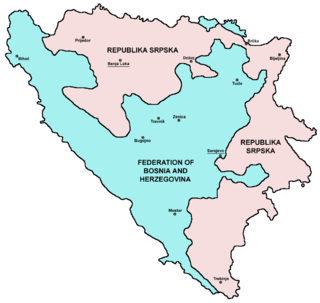
United Nations Security Council resolution 644, adopted unanimously on 7 November 1989, after recalling Resolution 637 (1989), the Council endorsed the report by the Secretary-General and decided to establish the United Nations Observer Group in Central America (ONUCA) in accordance with the report.
United Nations Security Council resolution 749, adopted unanimously on 7 April 1992, after reaffirming resolutions 713 (1991), 721 (1991), 724 (1991), 727 (1992), 740 (1992) and 743 (1992), the Council approved of a report by the Secretary-General Boutros Boutros-Ghali and decided to authorise the earliest possible deployment of the United Nations Protection Force (UNPROFOR) in the former Yugoslavia.

United Nations Security Council resolution 1035, adopted unanimously on 21 December 1995, after recalling Resolution 1031 (1995) and the Dayton Agreement, the Council authorised the establishment of a United Nations civilian police force, known as the International Police Task Force (IPTF) to carry out tasks in accordance with the agreement. It was part of the United Nations Mission in Bosnia and Herzegovina.

United Nations Security Council Resolution 1702, adopted unanimously on August 15, 2006, after recalling resolutions 1542 (2004), 1576 (2004), 1608 (2005) and 1658 (2006) on the situation in Haiti, the Council extended the mandate of the United Nations Stabilisation Mission in Haiti (MINUSTAH) until February 15, 2007.

United Nations Security Council Resolution 1709, adopted unanimously on September 22, 2006, after recalling previous resolutions on the situation in Sudan, particularly resolutions 1590 (2005), 1627 (2005), 1653 (2006), 1653 (2006), 1663 (2006), 1679 (2006) and 1706 (2006), the Council extended the mandate of the United Nations Mission in Sudan (UNMIS) for a period until October 8, 2006.

United Nations Security Council Resolution 1735, adopted unanimously on December 22, 2006, after recalling resolutions 1267 (1999), 1333 (2000), 1363 (2001), 1373 (2001), 1390 (2001), 1452 (2002), 1455 (2003), 1526 (2004), 1566 (2004), 1617 (2005), 1624 (2005) and 1699 (2005) on terrorism, the Council approved measures to improve the identification and control of terrorists.

United Nations Security Council Resolution 1738, adopted unanimously on December 23, 2006, after reaffirming resolutions 1265 (1999), 1296 (2000), 1502 (2003) and 1674 (2006) on the protection of civilians in armed conflict, the Council condemned attacks against journalists in conflict situations. It was the last resolution adopted by the Security Council in 2006.

United Nations Security Council Resolution 2016 was unanimously adopted on 27 October 2011 on the situation of Libya during the Libyan Civil War.

United Nations Security Council Resolution 2009 was unanimously adopted on 16 September 2011.

United Nations Security Council Resolution 1830 was unanimously adopted on 7 August 2008.
United Nations Security Council Resolution 1739 was unanimously adopted on 10 January 2007.
United Nations Security Council Resolution 1751 was unanimously adopted on 13 April 2007.
United Nations Security Council Resolution 1794 was unanimously adopted on 21 December 2007.
United Nations Security Council Resolution 1842 was unanimously adopted on 29 October 2008.

United Nations Security Council Resolution 1883 was unanimously adopted on 7 August 2009.
United Nations Security Council Resolution 1856 was unanimously adopted on 22 December 2008.

United Nations Security Council Resolution 1847 was unanimously adopted on 12 December 2008.
United Nations Security Council Resolution 1841 was unanimously adopted on 15 October 2008.











